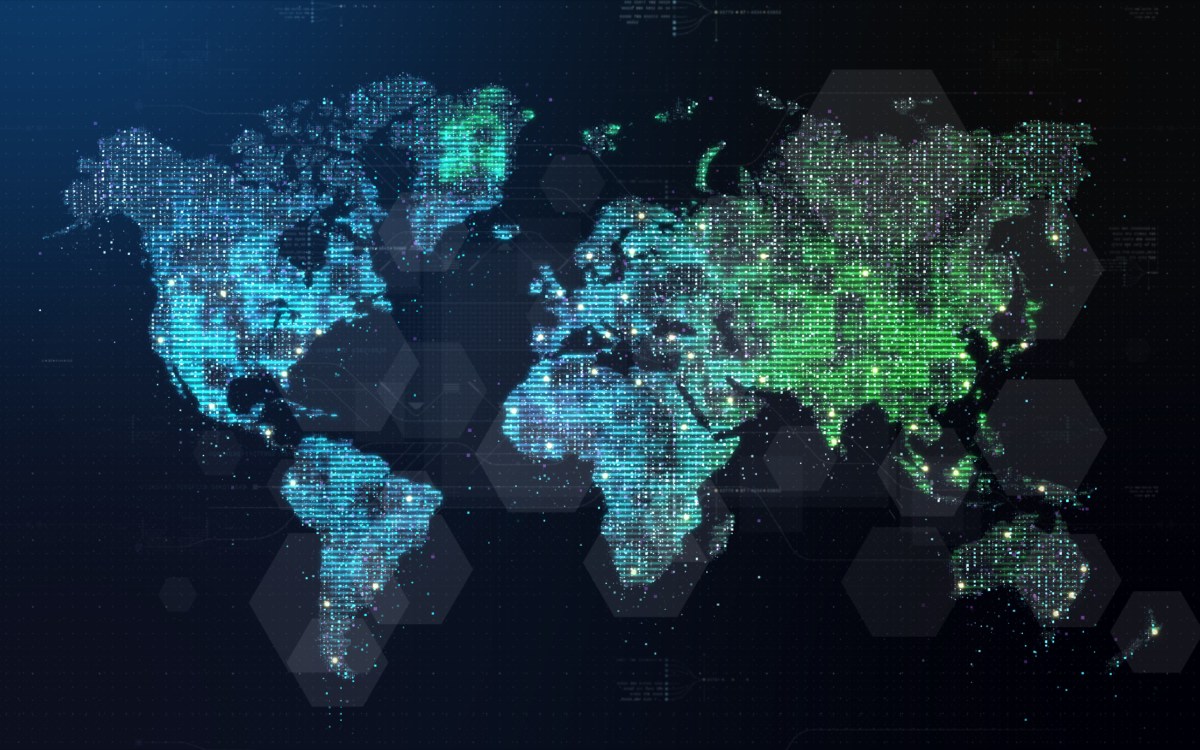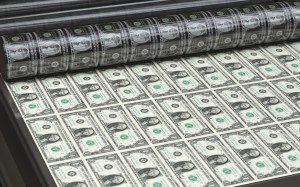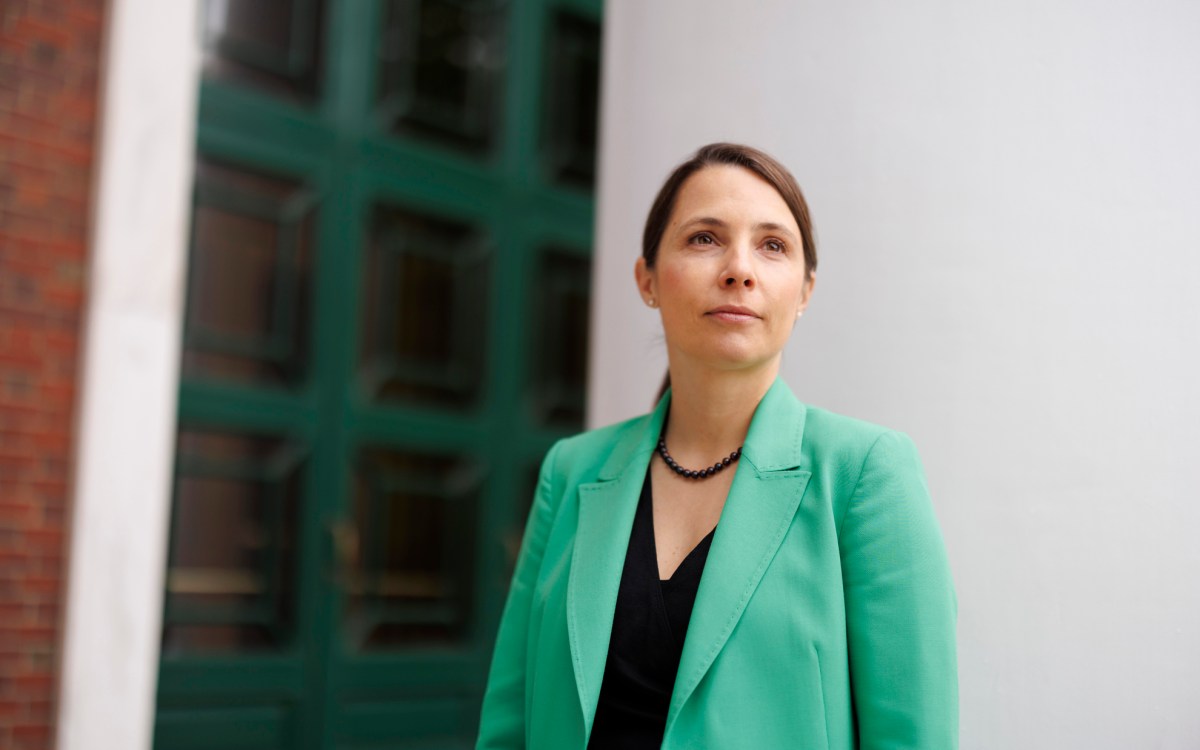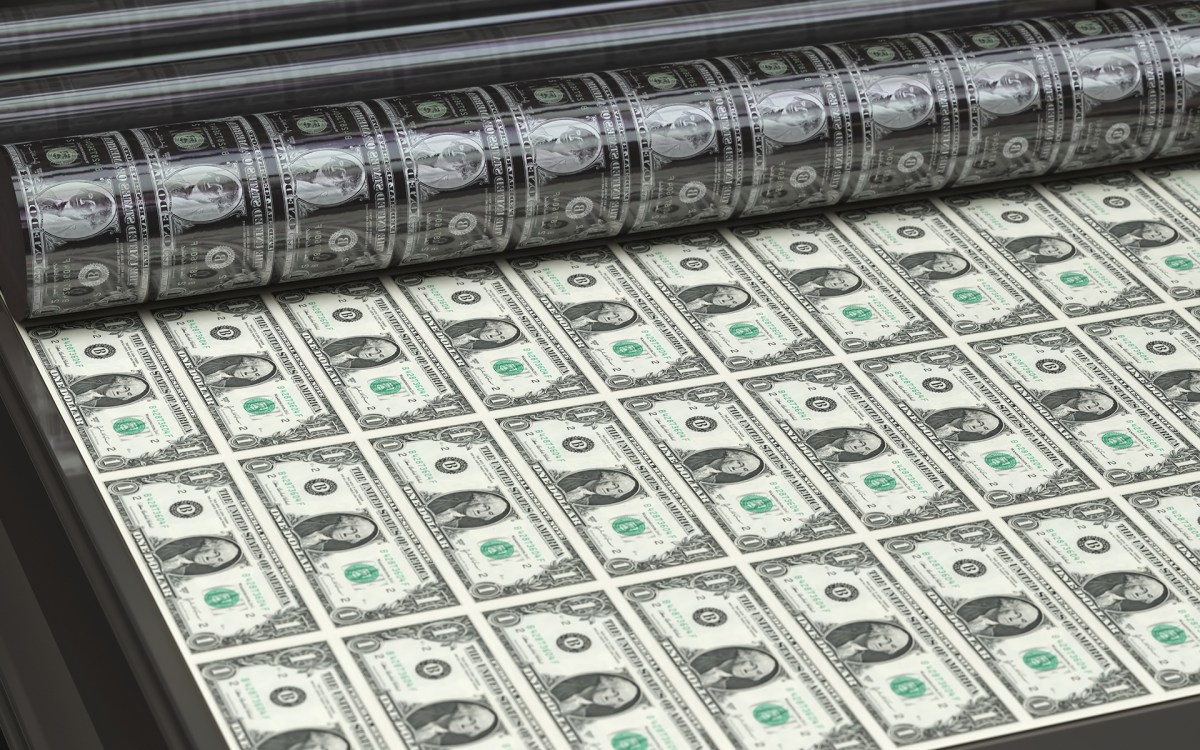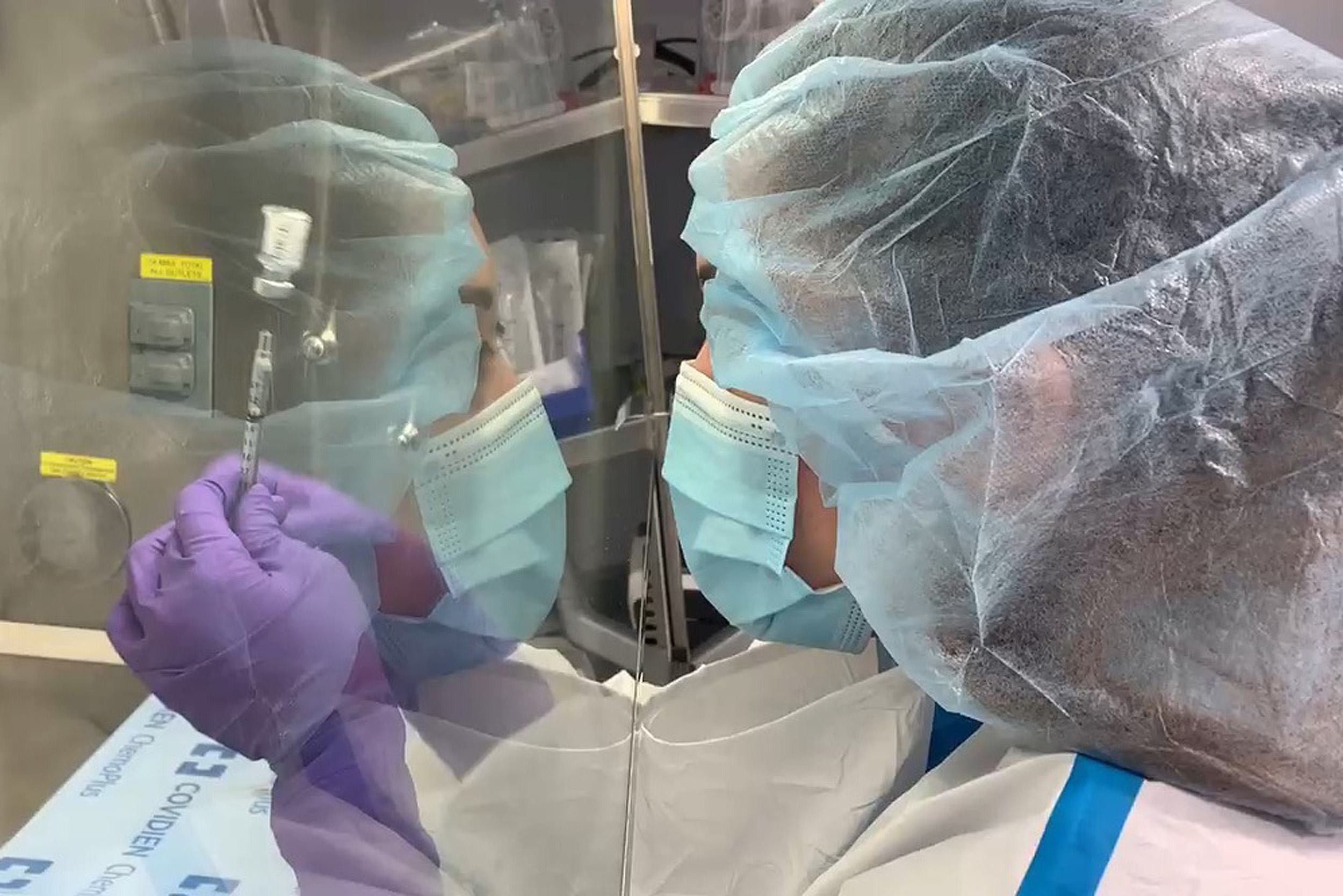
Photo courtesy of Dana Farber Cancer Institute
COVID vaccine race leaders likely won’t be only ones to reap huge payday
Therapeutics and law expert lays out the economics of this drug development
Pfizer and Moderna appear to be the clear leaders in the race for a COVID-19 vaccine. Pfizer has already begun distribution, and Moderna’s entry is on the brink of FDA approval, which would put the two at least weeks ahead of their rivals. But will this head start translate to market share and additional profits? The Gazette spoke with Aaron Kesselheim, professor of medicine at Harvard Medical School and at Brigham and Women’s Hospital, where he leads the Program on Regulation, Therapeutics, and Law. Kesselheim said it wasn’t clear how much of a competitive advantage the lead will yield, but the potential for vaccine companies to make money is real.
Q&A
Aaron Kesselheim
GAZETTE: We’ve been hearing “Pfizer,” “Pfizer,” “Pfizer” for the last couple of weeks, with a little bit of “Moderna” thrown in there. How important, from a business standpoint, do you expect it to be for a vaccine maker to be first out the gate?
KESSELHEIM: I don’t think it’s a very big advantage because part of U.S. taxpayers’ massive investment in the development of these vaccines was advanced market commitments in which the government guaranteed purchase of the vaccine at a certain price. Getting anything out of the gate, of course, is a big deal for public health, but whether one particular manufacturer is a week or a month ahead of another is not, because they’re not selling them on the market. They’re just fulfilling orders that have already been sold.
GAZETTE: So is it better to think of the vaccine not like a new product coming to market where there’s a big splash and you need to get people to buy it, but rather more like a government purchase, like buying a rocket for NASA or a new tank?
KESSELHEIM: I agree with that. Obviously, still, there’s going to be a big push to make sure the vaccine is distributed appropriately and that people feel motivated to take it. But the initial purchase of the vaccine is already taken care of.
GAZETTE: How hard is it for a pharmaceutical company to make money on vaccines? With a good vaccine, you give somebody a shot once and then they’re not your customer anymore. When I think about a product, a good vaccine has the opposite characteristics from something like a statin that you take every morning and will probably for decades.
KESSELHEIM: Actually, the No. 1 product that brings in sales for Pfizer is a pneumonia vaccine. It made Pfizer $5.8 billion in international revenue in 2019. There was a lot of public investment early in the development of pneumonia vaccines, and Pfizer’s has been on the market for many years. So the reality is that companies can make a lot of money off of vaccines. Certainly, Pfizer and other companies made a lot of money on brand-name statins for a long time, but at some point, statins went generic and now are extremely cheap. Vaccines don’t really go generic, in part because they are more complex products and require more specialized manufacturing facilities, so a pharmaceutical company can expect revenues for many, many years selling a successful vaccine.
GAZETTE: Does that dynamic hold true with all vaccines? What about the difference between something like a pneumonia vaccine, which is not given universally, versus a childhood vaccine, like measles, that everyone gets when they’re a kid? Or won’t it make a difference, from a business standpoint?
KESSELHEIM: The prospect for profitmaking on the coronavirus vaccines is through the roof. You can see that in how the financial markets have responded to companies like Moderna or Pfizer when they issued press releases about their vaccines for coronavirus in development. That was guaranteed when the government invested billions of taxpayer dollars in the development of these products without requiring reasonable prices or any royalties from the profits for the products after they were sold. I read somebody suggested that Pfizer and Moderna could make $32 billion off coronavirus vaccines in 2021 alone. So I think the companies are poised to make substantial profits off of these products.
GAZETTE: Initially, those profits will come from these pre-purchase agreements. But after that, do you expect the regular health insurance, health care financing system to take over?
KESSELHEIM: I expect that, after the virus becomes more like an endemic virus, hopefully by late 2021, as a result of the vaccine and public health measures under the Biden administration, that the coronavirus vaccine will be available much more like other vaccines, like the influenza vaccine and pneumonia vaccine or shingles vaccine and become part of the normal market in which vaccines are sold for high prices by their manufacturers. Most of those vaccine prices are absorbed by private insurance companies or public insurers like Medicaid. Most people don’t pay a lot out-of-pocket for those vaccines, but rather the prices for the vaccines are built into the cost of insurance through people’s premiums.
GAZETTE: When the government bought 100 million doses of Pfizer and the same of Moderna, did it do that to spur them to engage in expensive R&D without the risk of losing that investment?
KESSELHEIM: The “expensive R&D” is not exactly right in this circumstance. The clinical trials certainly cost a lot of money, but the technology of the mRNA vaccine had already been developed and discovered, largely with public funding. BioNTech, the company that Pfizer partnered with that had the technology for an mRNA vaccine available, got large amounts of funding from the German government. So there certainly has been a lot of private investment in research and development in the last nine months, but that was dwarfed by the public investment leading up to that time and that has also occurred during the pandemic. Furthermore, the private investment was done with extremely limited risk, because of arrangements like advanced market commitments on the back end.
GAZETTE: Do you expect the government to keep purchasing vaccines until all Americans are vaccinated or do you expect them to run through what they’ve already done and then it’ll go to the insurance companies?
KESSELHEIM: I don’t know that that’s known yet. There are basically two different mechanisms through which vaccines — outside of a pandemic — are made available to Americans. There’s private insurance through which vaccines — like the pneumonia vaccine or the shingles vaccine — are made available. Then there’s the mechanism through which routine childhood vaccines are made available, which is usually because the government serves as the main purchaser and then distributes them.
I don’t know in which direction coronavirus vaccines are going to move. I think that’ll depend on a lot of things we don’t know right now, such as how long coronavirus vaccine immunity lasts and whether, after people’s initial one to two doses, they’ll need additional vaccinations.
Another pathway would be for the government to continue to be involved in setting the market for those products. And in that case, I would hope that the price that the government pays is a fair price that covers the cost of development and provides reasonable additional profit, but not the same kind of monopoly prices characteristic of the pneumonia vaccine or shingles vaccine.
GAZETTE: How does this play out internationally? This must be the biggest market in history, since we’re talking about everyone. Do you see it being similar to the pattern here in the U.S. or is it dramatically different?
KESSELHEIM: It is a little bit different because a lot of other countries have public health systems with drug and vaccine purchasing systems in place that are organized at the government level. In addition, large international organizations like Gavi (formerly, the Global Alliance for Vaccines and Immunization) and CEPI (Coalition for Epidemic Preparedness Innovation) have been organized to help facilitate vaccine purchases for low-income countries in South America or Africa or Asia. Coronavirus vaccine purchasing will go through those organizations, and I think it will be better organized, with a lot more pressure to ensure a fair price, than in the United States, because we don’t have those systems in place.
GAZETTE: Will that also ensure that there are multiple players in the international market, that it’s not like a Coca-Cola that can come in and undercut its rivals for a little while and gain market share?
KESSELHEIM: I think that it depends on the extent to which this technology is scalable and manufacturers around the world are able to use the technology. If it is the case that the technology is portable, then I would expect to see other countries start to develop their own manufacturing facilities for these products.
GAZETTE: Is this something new? It seems like over the last several decades, innovation in pharmaceuticals of all kinds have come from the U.S. and other industrialized nations. Are we at a point where technology has simplified things to the point that pharmaceutical innovation is spreading more equally around the world?
KESSELHEIM: I certainly hope that happens, because that will make important new treatments and vaccines more readily available to people around the world who need them. A lot of innovation has come from high-income nations in recent years. And I think one of the big challenges that we’ve had as an international society is ensuring that poor people have appropriate access to the same life-saving treatments that we have in higher-income countries. Reducing such disparities has been a big goal of the World Health Organization and groups like that. So, if the coronavirus vaccine helps move that process forward, if that is one positive that comes out of this, then that would certainly be a silver lining to this horrible pandemic.
Interview was edited for clarity and length.
